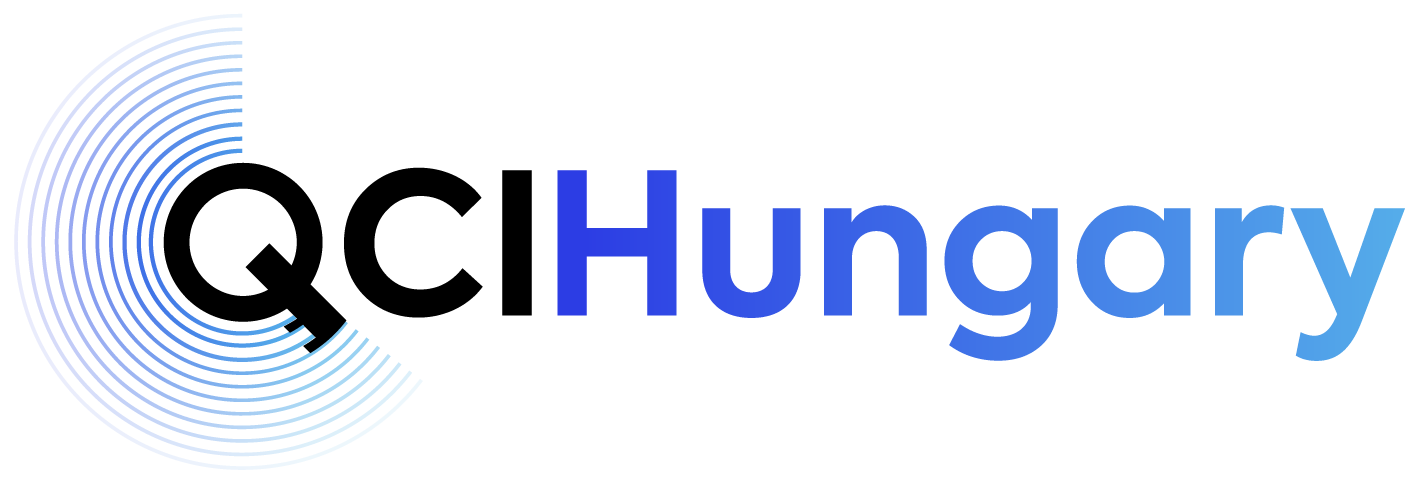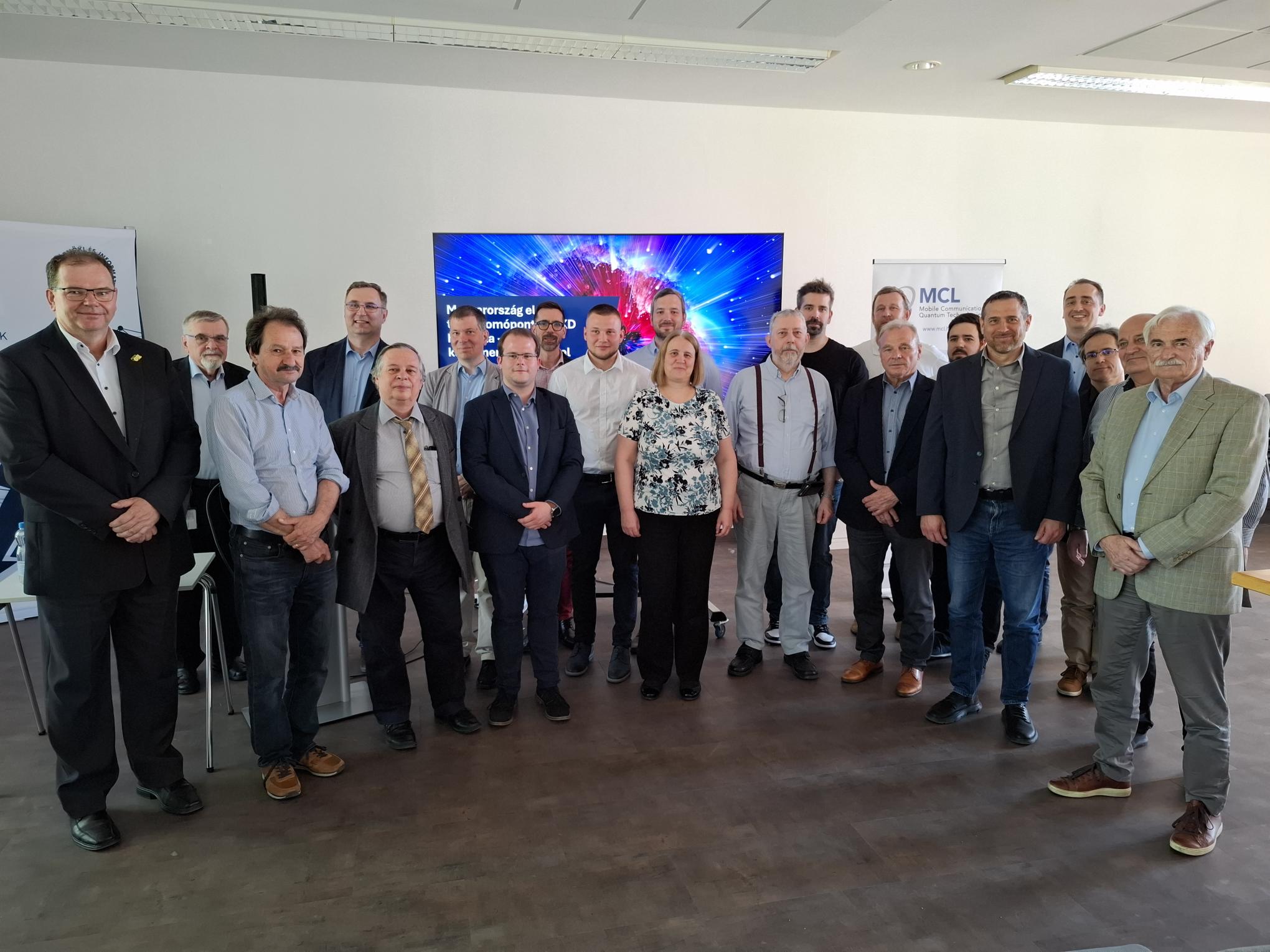On 22 April 2025, in the framework of a unique research-industry collaboration, AdvaNet Hungary Ltd., the Budapest University of Technology and Economics, Magyar Telekom Plc. and Netvisor Zrt. built Hungary’s first multi-node, key-managed quantum key distribution test network.
The network’s 3 nodes were located in the quantum communication laboratory in BME Building I, in the Budapest-Kelenföld telecommunication room and in Székesfehérvár. The network consisted of 3 layers. On the bottom layer, Toshiba quantum key distribution devices distributed 1 to 1 keys on the BME-Kelenföld and Kelenföld-Székesfehérvár sections. The servers in the middle layer performed the key management and were used for encryption between the two edge nodes. The upper layer applications demonstrated the usage of the encrypting classical applications.
At the event, Dr. Sándor Imre, Dean of the Faculty of Electrical Engineering and Informatics of BME, welcomed the participants, then the representatives of the four partners involved in the network’s creation – Dr. Eszter Gerhátné Udvary (Department of Network Systems and Services of BME), Attila Buzás (AdvaNet Hungary Ltd.), Emil Babics (Magyar Telekom Plc.), János Máthé (NETvisor Plc.) – gave insights into the background of the experiment. Afterwards, András Sóki (Magyar Telekom Plc.), Attila Róbert Horváth (NETvisor Plc.), Balázs Matolcsy (Department of Network Systems and Services, BME) and Barnabás Szőke (AdvaNet Magyarország Kft.) presented the technical background of the demonstration, and finally, the university node of the network could be visited in the quantum communication laboratory of BME. Dr. László Bacsárdi, head of BME Mobile Communication and Quantum Technologies Laboratory, concluded the event with his thoughts on the successful experiment, which was carried out over a distance of almost 80 kilometres.



